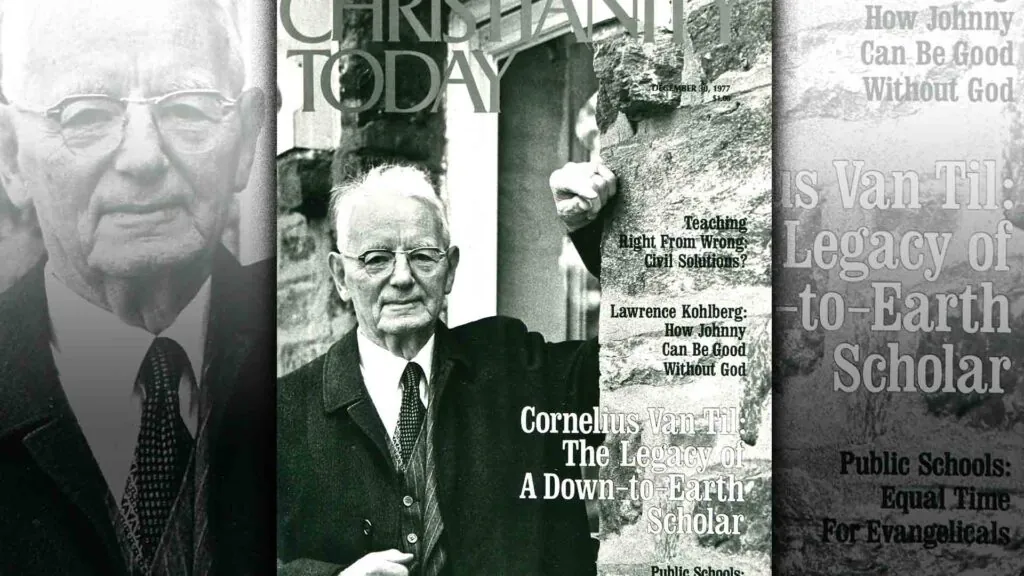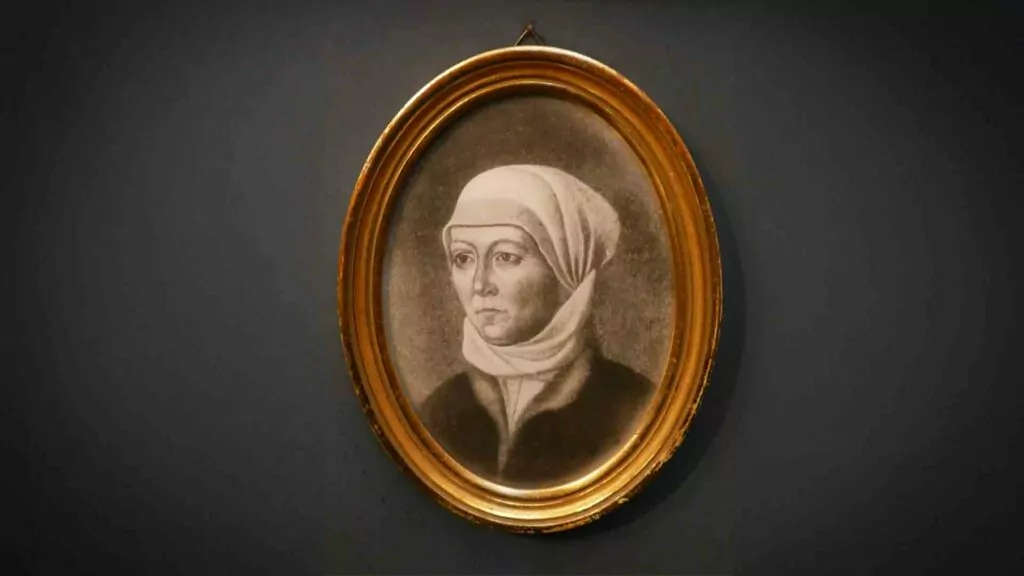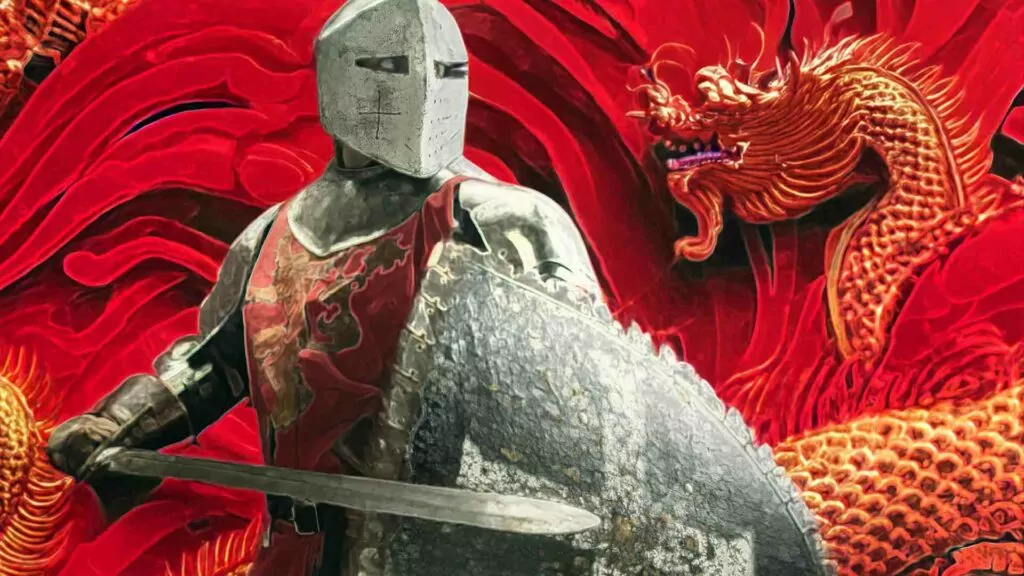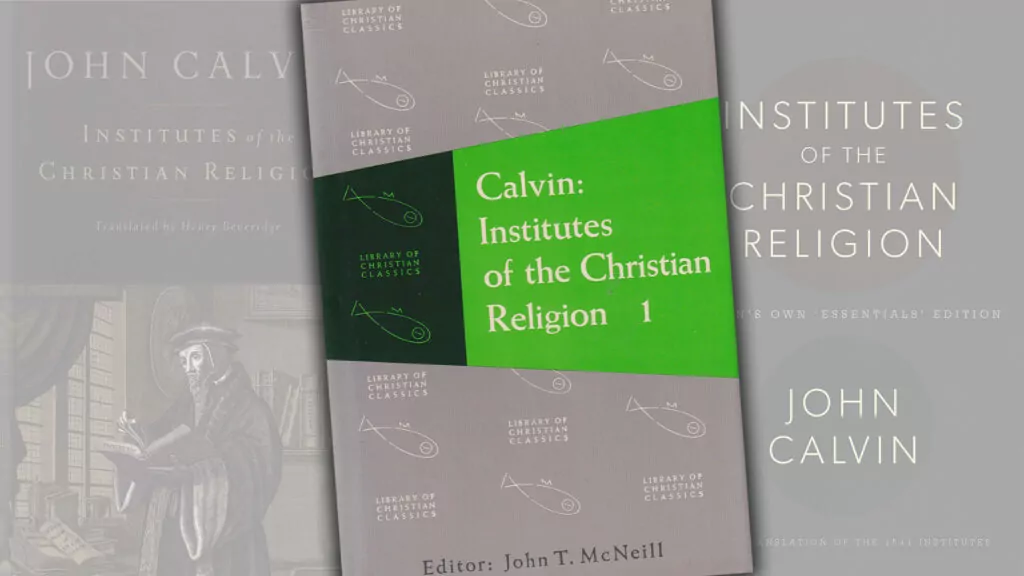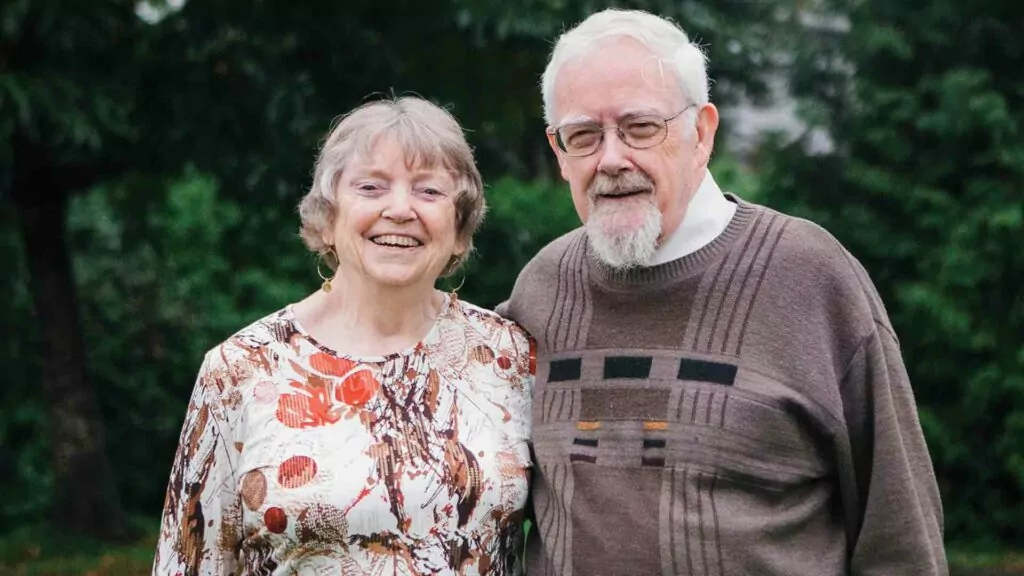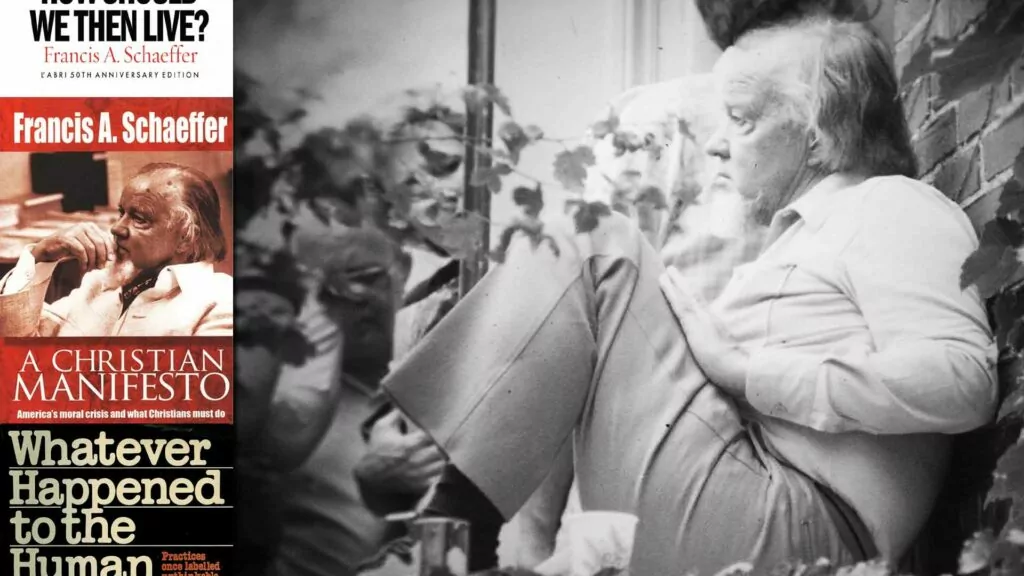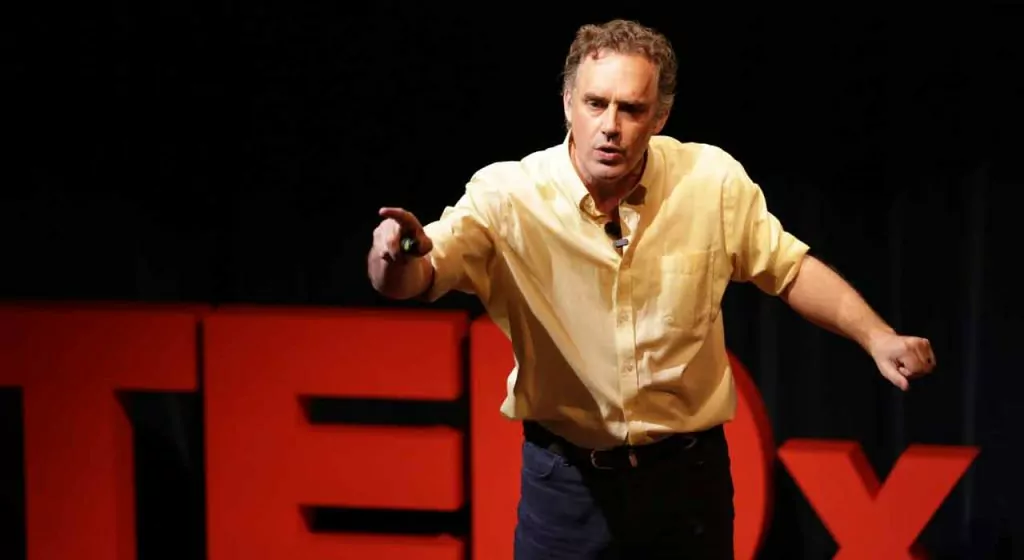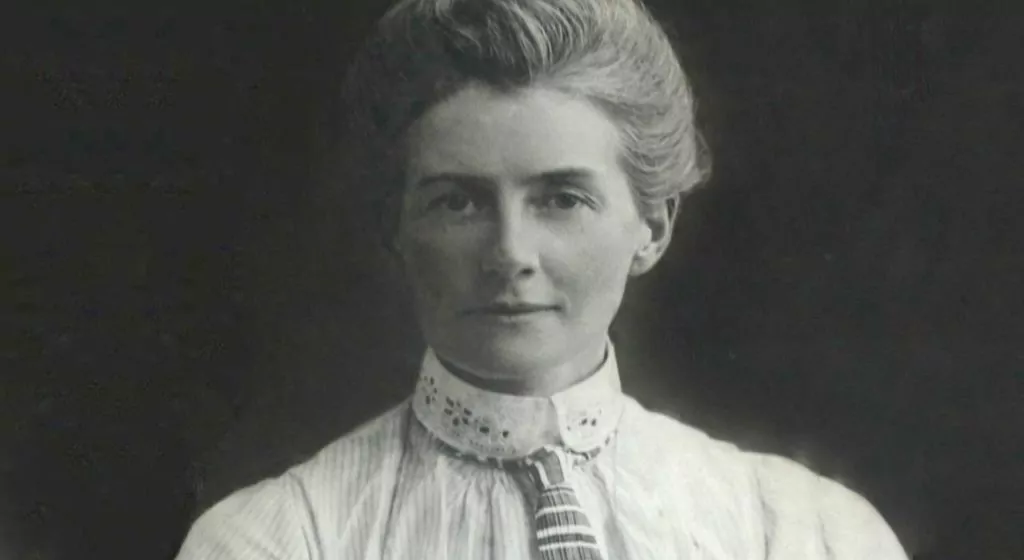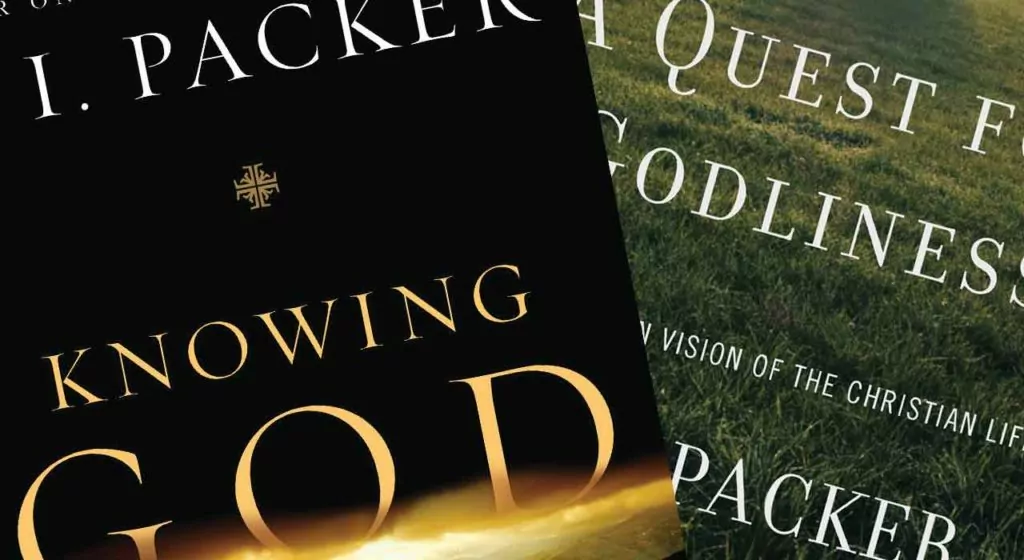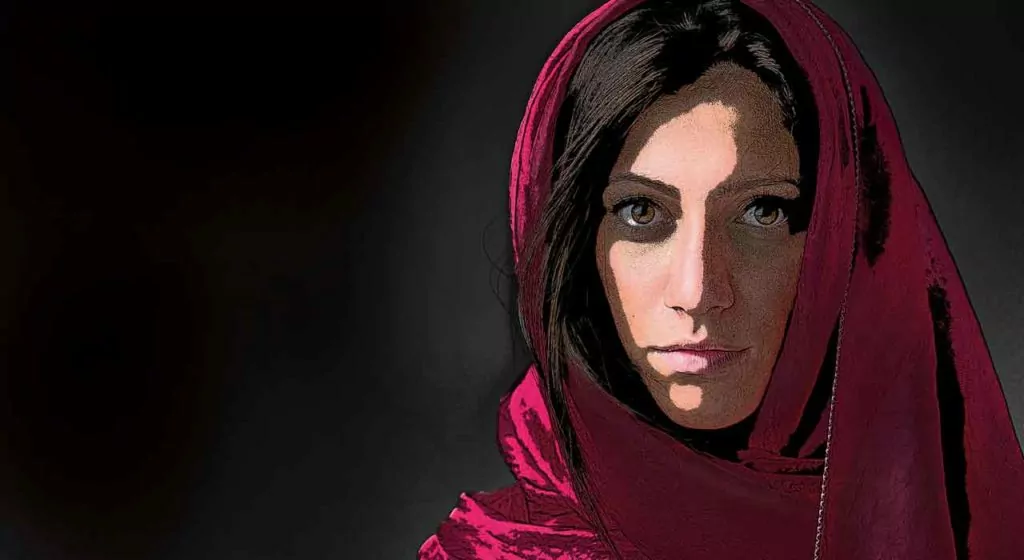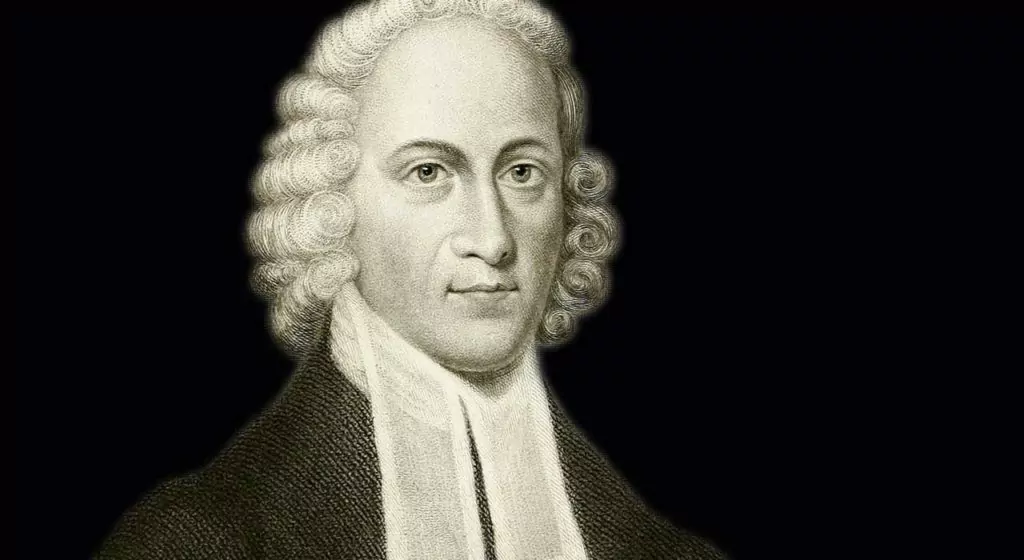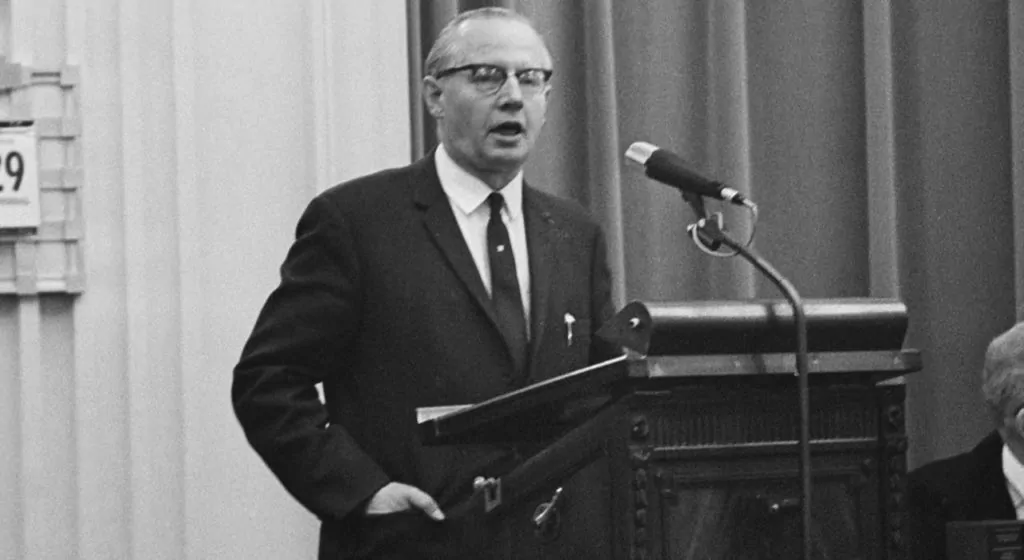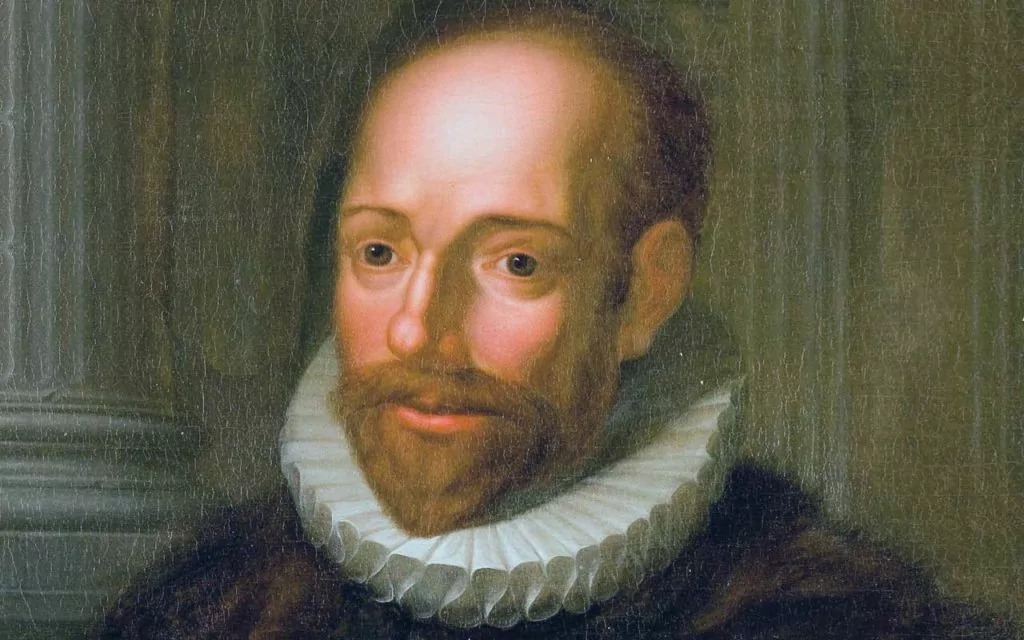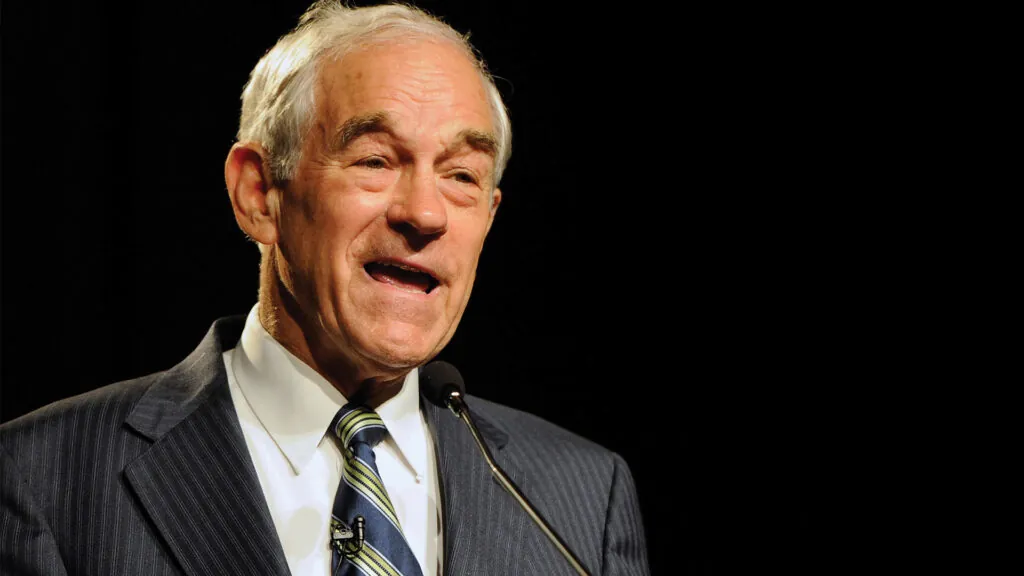Is Jordan Peterson the champion we've been looking for?
This was first published in the Mar/Apr 2018 issue.
*****
Christians, it’s time to think a bit more deeply about the Jordan Peterson moment.1
Unless you’ve been asleep and on a different planet for the past several weeks, you’ve probably seen a video clip of the increasingly popular social commentator Dr. Jordan B. Peterson. Most recently, Peterson was rocketed to the precarious and perhaps not-what-one-bargained-for, but nevertheless real, spotlight of internet stardom by brilliantly handling an aggressive feminist interviewer with raw logic, facts, and truth. His opponent was literally speechless. Scores of memes followed. Dr. North wrote up the exchange under the heading, “Bambi vs. Godzilla,” which it surely was.
Peterson is popular for a real reason, too. He’s speaking the hard truth about personal responsibility, and right into the teeth of the beast of leftist safe spaces, spin machines, blizzards of snowflakes, and the like. That stand on that issue alone, when executed well (and it is), is enough to win you a nice fan base. But Peterson adds yet another dimension. He’s leveling liberal academics from within their own fortress — the sacred groves of academia. Even better, he’s doing it from within one of the more rabidly liberal of disciplines. He’s a psychologist.
Conservatives everywhere are lining up to hear him. He puts his class lectures online and also posts several more casual and intimate Q&A style videos. His audience is overwhelmingly made up of young men, most of whom are hearing a positive, challenging, and inspiring message for young men for the first time. The war on boys ends here, and millions of viewers and students are lining up for something that sounds manlier than what they get anywhere else — certainly any of their other liberal arts classes. Each video Peterson posts gets tens or hundreds of thousands of views, and he, smartly, is receiving donations to a reported tune of something like $60k per month.
If his liberal colleagues didn’t hate him enough for repeat-blasting feminism and the LGBT political agenda like an intellectual jackhammer, they could hate him for just being such a greedy capitalist alone.
Meanwhile, conservatives have found a new hero. He’s brilliant, fairly well-read, and even better, he spends a ton of time explaining Bible stories from Genesis and the like in profound, engaging ways. Conservatives are cheering a new champion, young men are in love with the father they never had, and Christians are mesmerized by what seems like a new prophet of international proportions. At least one conservative Reformed conference ushered Dr. Peterson past any number of theologians to the front of the keynote speaker line.
The more I listen to Dr. Peterson, the more I like him and think maybe some genuine progress could be made with him from a biblical Christian perspective. He often exegetes material that most pastors don’t get, and applies it in helpful ways that I sense most pastors would be afraid to, even if they recognized the application.
And that kind of gets us to the “but” in this article, and it’s a “but” that every Christians needs to consider next to everything Jordan Peterson says and does, because it’s a very big “but.” In a nutshell, it is this:
For all of his toppling of great idols of humanism in our day, Dr. Peterson’s thought, from their presuppositions right through many of his conclusions, is as thoroughly humanist, autonomous, and thus ultimately dangerous, as anything any leftist ever said. Christians need to be aware of the depths of this problem in Peterson’s thought, and the implications it has for their discernment of his teachings.
Our happy blindness
Conservatives and Christians in general, however, don’t see it, due, I think, to a very regular historical occurrence. They have never really developed and taught their own thoroughly biblical psychology and social theory. They have a few snippets of beliefs from the Bible, and a few beliefs from Bible stories, and enough of an idea of Christ to have a lot of well-developed theories about individual salvation — at least, in the sense of answering “how do I get to heaven”? But social theory? Social dynamics? Personality, vocation, self-improvement, discipline, meaning, power versus authority, law, justice? We’re not only virtually empty here, but when even a few of us have tried, they are usually pilloried by the rest for daring to say the Bible speaks to such issues that are outside of individual ticket sales to heaven.
No wonder there’s a market for strong words about personal responsibility to young men today.
As I said, this has often been true in history. Christians have consistently failed to develop a distinctly biblical social theory. So, they wander like sheep with no shepherd; and when the next major social, moral, or intellectual crisis hits, they have usually found themselves sidling up to the strong, unifying voice of some secular moralist who is saying some of what the church should have been saying all along.
More often than not, too, the Christian intellectuals cannot line up fast enough to parrot the new hero and present mildly-baptized versions of his thought. Only, in the process, they end up carrying water for paganism, and bringing it right into the baptismal fonts of their sanctuaries. Christianity, and especially Christian social theory, suffers for a generation until the next crisis hits.
To prevent this problem, it would of course behoove us just to go ahead and develop a biblical social theory from the bottom up (there’s a good start on it already, by the way). It would also help to quit fawning over every bright and engaging pagan that momentarily captures our hearts in the meantime.
Even if we were to take a “chew the meat and spit the bones” approach (not out of the picture), it would certainly be incumbent upon us to learn, to know, and to know what the bones are — to understand the paganism of the particular unbelievers we invite to dinner, and to make sure the other guests are aware just how deep that rabbit hole goes.
Now, Jordan B. Peterson is the latest of such pagan heroes. Even if we were to decide he has a good benefit to offer to those with a biblical Christian worldview, when analyzed from that perspective, we need at least to talk about the presuppositions from which he is working, and what that means for us, and some of the things they, so to speak, don’t tell you in the brochure.
The depths of depth psychology
Jordan B. Peterson is sometimes called a Christian, and some have said he calls himself a Christian. But from any orthodox or historical definition of that term, nothing could be further from the truth — his interesting grasps of Bible stories notwithstanding. Peterson is a clinical psychologist by trade and by academic profession, but in terms of worldview, he is a full-blown, unapologetic, enthusiastic Jungian humanist, with a twist of Nietzsche in there, too. This means, first, you need to know a little bit about Carl G. Jung.
Jung early on was a parallel figure to Sigmund Freud, but eventually developed certain ideas into something more complex and fantastical than Freud, by wedding forms of ancient pagan, mystic, occult, and other esoteric philosophies into his theories of the primitive drives and instincts, sexual and otherwise, of the human libido which make up the core of our unconscious being. Jung was a strong disciple also of Friedrich Nietzsche, and many Nietzschean themes such as the Übermensch (“super-man”), death of God, and the transvaluation of all values find new expression in Jung’s theories. To this Jung further added völkish religion, Aryanism, UFOs, alchemy, and virtually all forms of occultism (emphasis on all).
There was a tremendous push and enthusiasm in Germany at the time for all such things, and one popular understanding of it all was that Germans, in order to become truly all they were destined to be (whether naturally, through evolution, or mystically through some kind of cosmic evolution), needed to push beyond all the impediments Christianity had forced upon German civilization and engage the true roots of ancient German folk religion, which predated Christianity and had within it all the secrets, mysteries, and savage power in a sort of mystical, cultural DNA that would make Germans be all Germans were ever intended to be — fulfilled, transcendent, powerful.
And if you sniff a bit of Hitler and Nazism in that, that’s because it’s all the stuff they were made of. But there is even more to it.
This also came on the heels of two generations of developed higher criticism of the Bible (much of it led by German scholars) — the kind that far surpassed merely denying inspiration, and said the Bible must be treated like any other book, then proceeded to deconstruct it into fine slices with razors of all kinds of criticism, historical, literary, philological, textual, linguistic, etc. The result was a near-total denuding of the faith of the German people, and many more besides. In this milieu grew up the likes of Nietzsche (not to mention Marx), but also a whole new denigration of traditional Christianity, and on top of that, a whole new appreciation for all things pre-Christian and not-Christian. Into the void flooded, among other things, a great interest in the ancient mystery religions — especially those which were supposed to have the deepest, purest of Persian/Aryan roots, for these were the ancient roots of the Germans.
By the time Jung arrives, there is a developed body of scholarly literature on all of this. One of the mystery religions which most captivated Jung, for various reasons, was the Roman cult, allegedly of Persian origin, of Mithraism. This was a blood-sacrifice cult centered on a Sun god named Mithras and featuring also a lion-headed god.
These things were not fringe or side interests to Jung. They were the core of his very being and of the psychology, philosophy, and methods he developed. It was around 1913 that Jung, through dabbling in spiritualism and psychic trances (which he called “active imagination”), achieved his own personal version of Nietzsche’s Übermensch. He had a vision in which he met Elijah and “Salome” in a “Druidic sacred place.” Salome approached Jung and began to worship him. When he asked her why, she said, “You are Christ.” A snake approached him and coiled around him. Soon, he could feel that his face had transformed into that of a lion.
Jung explained to an audience in 1925 that through this experience, he had been mystically initiated into the Mithraic mysteries, and had undergone “deification”—personally transformed into the very lion-headed God, named “Aion” by Jung, featured in the ancient cult. Jung believed he had been deified, identified with Aion the Persian/Aryan sun God, and immortal.
The one thing on which all of this was built, and with which all the major players were consistent, was the need to find something to replace the razed religious foundations and superstructure of traditional Christianity.
Jung himself embodied this critique. He agreed with the vast critics of Christianity at the time and saw Christianity as a great historical distraction to the true development of the human race. If history had only gone differently, we would have not had this sad affair, but been more thoroughly enlightened by Mithraism and the mysteries instead of impeded by Christianity. Instead, he said, “In the past two thousand years Christianity has done its work and has erected barriers of repression, which protect us from the sight of our own ‘sinfulness.’ The elementary emotions of the libido have come to be unknown to us, for they are carried on in the unconscious; therefore, the belief which combats them has become hollow and empty.”
A few paragraphs from one popular Jung scholar will tie this all together, explaining Jung’s worldview and teachings:
Within each native European there was a living pre-Christian layer of the unconscious psyche that produced religious images from the Hellenistic pagan mystery cults or even the more archaic nature religions of the ancient Aryans. The phylogenetic unconscious does not produce purely Christian symbols but instead offers pagan images, such as that of the sun as god. If the sediment of two thousand years of Judeo-Christian culture could be disturbed (as in psychotic mental diseases with a psychological component, such as dementia praecox), then this Semitic “mask” might be removed, and the biologically true images of the original “god within” could be revealed: a natural god, perhaps of the sun or stars like Mithras, or matriarchal goddesses of the moon or blood, or phallic or chthonic gods from within Mother Earth. . . .
To Jung, the mystery cults of antiquity kept alive the ancient natural religion of human prehistory and were a corrective antidote to the poison of religions—like Judaism and Christianity—that had been forged by civilization. . . .
Jung regarded Christianity as a Jewish religion that was cruelly imposed on the pagan peoples of Europe. . . . Semitic cultures, cut off from the primordial source of life, did not have mysteries in which a direct experience of the gods could be attained through initiation rituals. They were, therefore, cut off from the renewal and rebirth that such mysteries offered the Aryans. . . .
Jung often referred to the ancient mysteries as the “secret” or “hidden” or “underground” religions and their social organizations as the secret or hidden churches that kept alive the divine spark from the dawn of creation. This leads us to an obvious conclusion. When Jung became one with Aion in his visionary initiation experience, in his imagination he was not only becoming a full participant in the mysteries of Mithras; he was experiencing a direct initiation into the most ancient of the mysteries of his Aryan ancestors. . . .
Here’s the part that is the most crucial summary for our purposes:
His new science of psychoanalysis became the twentieth century vehicle of those mysteries. Most important, as his initiation experience also entailed assuming the stance of the crucified Jesus as he metamorphosed into Aion, Jung thereby became the figure that fueled the fantasies of thousands of Volkish Germans and European and American anti-Semites at the turn of the century: the Aryan Christ.
Much more could be added to this, and in fact is in the books from which these paragraphs came, The Jung Cult and The Aryan Christ: The Secret Life of Carl Jung (see esp. pp. 121–147), both by award-winning author and clinical psychologist Richard Noll.2
I want to be clear here: while there are obviously strains of antisemitism in all of this, and Jung did briefly give a favorable glimpse to Nazism, the point here is not to play the anti-Semite card and try to discredit Jung in that way. The point here is to show the radical break with all things Christian, the reinterpretation of even Jesus himself in terms of mystical, occult mysteries, and the projection of such occult practices into a thoroughly scientific-sounding method of “psychoanalysis” as a way of, among other things, transforming the collective imagination of the West from Christianity to a new paganism (same as the old).
All of this was Jung’s answer to Nietzsche’s “death of God” proclamation. Nietzsche was not just dancing on the grave, he was alerting the world to a need for something to fill the void left behind, because “God” had been performing some pretty important services in regard to meaning and morality and all, so those who killed him had to pick up the slack. Nietzsche’s answer to this, in a nutshell, was that we had to become powerful autonomous actors who from now on determined our own values for ourselves. Or as Peterson has put it in his lectures, men must become creatures who can autonomously create their own values. But this looked like trouble. So what Jung added to that answer was to examine people’s fantasies to determine their drives and motives, and supply some kind of collective unity that could tie these many autonomous actors to something common. He added the dimension of mythology across history as a guide to interpretation and meaning. These last few explanations are notes directly from Peterson’s own lectures.
In short, Jung mainstreamed the most famous doctrines of the atheist Friedrich Nietzsche, and also mainstreamed virtually every kind of ancient paganism and occultism right into the heart of twentieth century secular humanism, and it makes a huge core of what makes modern humanism what it is.
This is what Christians should consider when they listen to Jordan Peterson, because this is precisely, and quite squarely I would add, where he is coming from when he says what he says, even when it seems to comport with Christianity.
Peterson’s Jungian worldview
Some will be quick to object that I am merely poisoning the well. All of this, I admit, could indeed be seen as one big genetic fallacy, or series thereof. We could understand Peterson’s association with Jungian psychology as little more than incidental, like a kind of professional vestige, long since watered down and papered over with many layers of more modern, scientific clinical theories.
Except, Peterson says things like this: “Jung, I would say, was the most serious thing for the twentieth century.” And he says such things with passionate verve. And he lectures with enthusiasm on how great Jung was and he weaves Jung’s theories and ideas into his own. He speaks openly of Jung (and Nietzsche, too), his admiration for him, and quite often will drop phrases and ideas from Jung’s methodology that show Peterson follows the same path: for example, the interpretation of people’s “archetypal dreams” and “the mythological underpinning of them” in his psychological practice.
Consider teachings like this:
For Jung, not only are the substructures of your thought biological, and so therefore based in your body, but your body was also cultural and historical.... You’re an evolved creature, so 3.5 billion years worth of weirdness that you can draw on, or that can move you where it wants to move you.... But also, you’re being shaped by cultural dynamics all the time.... Part of what every single person is constantly broadcasting to every other person is how to behave....
Then he discusses the archetypal “savior figure” as the distillation of a thousand people’s ideals, and says if someone comes along who is close to one of these figures, you have a religion. So, the story of Horus and Isis kept Egypt civilized for millennia. Then that story “sort of transmuted into Judaism and then turned into Christianity, so it’s not like the ideas disappeared.” Peterson says
You’re just as possessed by those ideas as any ancient Egyptian, you’re just more fragmented, because what your conscious mind assumes and what your unconscious mind assumes are different things, and you’re always at war with yourself; that’s why you’re attracted to ideologies.
These ideologies he calls “idols” and destructive to your soul (I wondered if he would include the ideologies of Jung and Nietzsche in that. Don’t know.). He concluded the section by mentioning what is so terrifying about Jung: “there’s no escaping the realization of the nature of the forces that are behind the puppets that we are.” Scoffing at people who said Jung started a cult, Peterson says he is “so much more terrifying than a cult!” No, Jung was “trying to bring the primordial imagination back into the world and to make people conscious of it.”
And there’s more. If there’s any single thing Peterson’s become known for, it’s his emphasis on taking personal responsibility. Here, it would seem, there’s at least some overlap with the discipline, responsibility, and sanctification found in Christian teaching. But not really, this is Jungian too. Peterson himself teaches, “The thing that is instantiated in Jungian psychotherapy, the Jungian model, is, it requires personal responsibility above all else.”
It’s not Christian. It’s Jung’s answer to Nietzsche’s superman. It’s humanism, human autonomy, self-help, or in Peterson’s personal brand, “self-authoring.”
Peterson comes across as conservative, mainly because he takes such an uncompromising stance against “cultural Marxism” and “postmodernism” (which he says is just Marxism under a new name), but his own roots in Nietzsche and Jung not only conflict with that stance in theory (who, after all, is a greater granddaddy of postmodernism than Nietzsche?), but some of his own ethical wranglings show those roots in practice as well.
One lesser known, but certainly not surprising, aspect of Jung is his sexual immorality. He counseled some of his clients to have affairs, and himself had women in addition to his wife. Peterson is certainly more prudish personally (his assessment), yet himself from his worldview has a hard time addressing homosexual marriage. Yes, he would oppose such a law if it were only cultural Marxists using it to destroy western civilization, but he’s also supportive of it because “it’s a means whereby gay people can be more thoroughly integrated into standard society, and that’s probably a good thing.”
Likewise, on abortion. He has no problems calling it morally wrong, though on pragmatic and anecdotal grounds. But the question of its legality is a whole different thing. Some morally wrong things should still be legal. This discussion, he said, is nested inside a larger discussion, and in discussing it, Peterson reveals how he once counseled a 27-year-old female virgin to address her personal timidity by going out and having some sexual “adventures.” After all, “You can’t just say to people in the modern world, ‘No sex until you’re married.’”
Even in his “self-authoring” theme, Peterson is Jungian-Nietzschean to the point of being postmodern himself. In speaking of self-improvement in metaphorical terms, he says this:
then if you create an ultimate judge, which is what the archetypal imagination of humankind has done, say, with the figure of Christ — because if Christ is nothing else he is at least the archetypal perfect man and therefore the judge — you have a judge that says get rid of everything about yourself that isn’t perfect.
The thing that’s interesting about this, I think, is you can do it more or less on your own terms. You have to have some collaboration from external people; but you don’t have to pick an external ideal. You can pick an ideal that fulfills the role of ideal for you; you can say, OK, if things could be set up for me the way I need them to be, and if I could be who I needed to be, what would that look like? You can figure that out for yourself, and then instantly you have a judge.
Maybe he would explain these points, or the context, a little more satisfactorily given the chance, but as it is, this is nothing less than the very moral relativism one would expect from his inspirations (yet which he himself decries).
Jung with a stiff upper lip
Somehow, however, this Jungian depth psychologist has adopted a conservative-ish streak along the way. But even these are humanistic. The following excerpts of Peterson quoted in David Brooks’s recent article are very interesting:
All of life is perched, Peterson continues, on the point between order and chaos. Chaos is the realm without norms and rules. Chaos, he writes, is “the impenetrable darkness of a cave and the accident by the side of the road. It’s the mother grizzly, all compassion to her cubs, who marks you as a potential predator and tears you to pieces. Chaos, the eternal feminine, is also the crushing force of sexual selection. Women are choosy maters. … Most men do not meet female human standards.”
Life is suffering, Peterson reiterates. Don’t be fooled by the naïve optimism of progressive ideology. Life is about remorseless struggle and pain. Your instinct is to whine, to play victim, to seek vengeance.
Peterson tells young men never to do that. Rise above the culture of victimization you see all around you. Stop whining. Don’t blame others or seek revenge. “The individual must conduct his or her life in a manner that requires the rejection of immediate gratification, or natural and perverse desires alike.”
When I hear “struggle” and “suffering,” I hear the ancient Greek philosopher Heraclitus. When I hear the advice to rise above these and face them like a man, I hear classic stoicism (which churchmen of the era loved). The two are far more similar, by the way, than most histories of philosophies catch. These ideas connect historically also in Nietzsche, but also in classic British conservatism. In the face of calamity and chaos, keep a stiff upper lip. Don’t bend, don’t’ change. Edmund Burke could have written those paragraphs.
Above all, a Burkean Conservative would say, don’t touch the ancient institutions. Don’t mess with the fundamental foundations of society that have served us well for so many years. Don’t change anything. If you do, you don’t know what the consequences will be. This is exactly Peterson’s message, too. Don’t be fooled by naïve optimism. Accept traditions, etc., even if you have to embrace the pain.
Sure enough, what we are getting in the conservative and Christian flocking to Peterson is the same thing we saw with the classic conservativism centering on Edmund Burke. Never mind that he was every bit as much a humanist and natural law proponent on social theory as Robespierre himself. It was the Right Wing of the Enlightenment, and Christians loved it, mainly because it said some things Christians weren’t getting in a fully biblical form from their pulpits — weren’t getting at all, really.
Christians don’t realize that the Enlightenment had two wings, one right and one left. When we think humanism, we only think left wing humanism, but the right wing was every bit as humanist. One could go on to say, in fact, that the right wing of the enlightenment is even more dangerous than the left, because it teaches humanistic principles on humanistic foundations, but often with common conclusions Christians like to hear, and often in language that sounds amenable to Christianity. Here are the Isaac Newtons, Adam Smiths, Edmund Burkes — all guys Christians tend to love. It is often through these relationships and their influence that humanism enters the church to the detriment of all.
Analysis from a Biblical worldview
The point with Peterson should not be to have to do something so obvious as to go through Peterson’s lectures on biblical narratives critiquing every point from the perspective of orthodox theology. Rather, it is to look deeper at the presuppositions that underlie his interpretations and methods, and what, while it may sound profound (and in a way, is), is little more than the same type of humanistic repurposing of the texts to which we would strenuously reject and decry if we heard a liberal doing it. But since this guys seems to be on our side, we give him a more passive treatment.
Cornelius Van Til provided a very helpful multi-point review of the psychology of religion which not only nicely critiques humanistic attempts (which would subsume Jung), but also establishes biblical presuppositions from which to do so.3
A biblical worldview of souls (“psychology” is the study of the soul) must begin with the Creator-creation distinction. Man is not God, and man cannot become a god. Second, the fall of man is the source of all our brokennesses. All of them. We will not be saved by creating a distillation of archetypes from the collective imagination of fallen man, or any projection from that which is already broken. Nothing derived from us either horizontally with other men, or vertically up from ourselves, can save us. The cure of souls must come from without, not within fallen humanity.
Psychology, therefore, that proceeds on any other ground, certainly including Jung’s program, is a rival plan of salvation to that of the Bible and Christian tradition.
These basic ideas have severe implications.
First, as we have seen with Jung and Peterson above, the rival views are hardly neutral. This is because there is no neutrality. Our views of psychology and “Self-help” are either in covenant with God, or covenant breaking with Him.
Second, humanistic psychologies assume that man is his own autonomous being — autonomous from God, that is, because they will call him everything but subject to the God of the Bible, even going so far as to call him subject to the impersonal forces of the universe, or a collective consciousness of humanity. He is autonomous from God, nonetheless. But man is totally dependent upon his creator. For the Bible, man is created in the image of God. For the Jungians, God is created in the images of glorified men.
Third, since man is dependent upon the Creator for his being, and totally subject to Him, this means man is also dependent upon Him morally. The whole concept of establishing our own values, then, whether per Nietzsche, Jung, or Peterson, is unbiblical and humanistic. For the humanist, man must be saved on his own terms, setting his own values. For the Bible, man must return to the ethics God created for him.
When we follow the humanistic models, like Jung’s, but any of them, really, we can trace several steps of the destruction of the foundations of civilization. First, the intellect is dethroned in favor of irrational, forces — thus the emphasis on paganism, spiritualism, and all things occult.
Second, man is eventually reduced to little more than a holistic corpus and product of such forces.
Third comes a focus on the psyche developed in childhood. The child becomes the most meaningful part of the psyche, and thus of the person. The adult is soon interpreted in terms of the child.
Fourth, emphasis is placed upon the unconscious and subconscious forces.
Fifth, emphasis is placed upon abnormal psychology. Since there is no fall in humanism, the abnormal and normal are both natural, and thus both normal in a way. Thus, for example, homosexuality is just as valid as hetero. In ethics, this means homosexual marriage must be given some space as valid in the mix.
Sixth, the emphasis next becomes primitive and primordial man. Jung obviously exemplifies this in reaching back to our earliest pagan roots for archetypal patterns and foundations.
Seventh, we go from primordial man to animals. The key to the human psyche will then lie somewhere deep in our evolutionary history. Not the men, not the abnormal man, not the child, not the subconscious, but the chimpanzee and the rat, will explain our woes and its cures.
And if you can recall Jung standing there, snake-wrapped, with his own face replaced by that of a lion, perhaps you can see that this is no joke.
In virtually every one of these areas, we can easily refute Freud and the humanistic traditions, whether Jungian, behaviorist, or whatever. But such refutations also just as earnestly critique the humanistic foundations from which Peterson works, as well as many of the points he would emphasize from them. We don’t need another lion-headed Aryan would-be Christ, or any other humanist stretch of the imagination. What we do need is to return to the God-man that our Creator sent to rescue us in our fallen condition. Here we can find true representation, manhood and womanhood, ethics, meaning, and a future outlook.
And in that outlook, we’ll be much better equipped to discern the problems that appear in even the good-speaking humanists.
Conclusion
When you boil it all down, the weightiest contributions coming from Peterson are actually quite limited and easily procurable from sources with less intellectual baggage and less-deceptive packages to truth-and-practice-hungry Christians. His weightiest contribution on social theory is a repeated historical lesson that communism lay behind the slaughter of millions of people, and we don’t want to return to that.
Ok, fine. But we’ve got plenty of help on that message already. We just need pressure on the teachers to teach it more. We need simply an effort to get the word out better on that.
His weightiest contribution on personal life is the emphasis on personal responsibility and self-discipline. Don’t buy into the lure of victimhood and entitlement.
Ok, fine, too. But that’s the message of the mind of Christ in the New Testament (Phil. 2), in which version it is far more meaningful and profound. It’s the most fundamental lesson of sanctification in the Bible. It’s where Christians should begin and never depart. So why don’t we begin with the Bible and not depart from it? It contains, Peter says, “all things pertaining to life and godliness.” No detour through Mithraism or the Übermensch is needed here.
So, why do we allow ourselves to become enamored with the pseudo-profundities of Jung and depth psychology, and with their fundamental deceit that the answer lies inside of ourselves, in humanity, in a collective unconscious, in humanity’s evolutionary being? What improvement is this over any other humanism?
Why, I ask you Christian, would we want to trade one humanism for another? I am speaking of intellectual presuppositions and foundations. Why does it matter if we try to build Christian-sounding ideas on top of Right Wing Humanism or Left Wing Humanism? Ultimately, beneath both, are the same ideas: we are evolved beings, the universe is impersonal, we are products of our environment, our instincts, drive, and urges rule us, etc., etc. The only good that exists in Peterson’s talks is when he departs from these basic presuppositions and happens to echo biblical ones, and that should tell us all we need to do next: go to the source of the good ideas Peterson has. That source is Scripture. Peterson denies the inspiration of it, the historicity of it, the God who is behind all of it, and the Christ who is the Son of that God and Savior of us in our condition.
Yet Peterson is commanding huge audiences of largely young men. While we obviously need a clear warning in the church that his foundations and teachings lack quite a bit, the nature of his appeal speaks volumes about what is missing in our own house. But for all of this problem, the main lesson Christian leaders need to take from this is to see where all the young men are flocking to gain wisdom and insight into practical living and every area of life while Christian leaders are missing the boat in virtually every way a boat can be missed: intellectually, spiritually, apologetically, culturally, as well as in terms of business, opportunity, community, dominion, etc.
Endnotes
1 The phrase “Jordan Peterson moment” was coined as the headline of a recent New York Times article by David Brooks.
2 Peterson, like much of the pro-Jung academic guild, has not been appreciative of Noll, and in a lecture called him a “crooked guy,” although when confronted later apologized.
3 The following points are taken from Rushdoony’s summary of Van Til in “Psychology,” in Foundations of Christian Scholarship: Essays in the Van Til Perspective (Vallecito, CA: Ross House Books, 2001), 41-51.
This article was first published on AmericanVision.org under the title “Is Jordan Peterson our new Aryan Christ?” and is reprinted here with permission. Dr. Joel McDurmon is the author of "God vs. Socialism" and "The Problem of Slavery in Christian America" and many other books. Top photo is cropped version of TEDxUofT Team picture (photo credit: Strategic Communications/University of Toronto) and used under a Creative Commons license Attribution-NonCommercial-NoDerivs 2.0 Generic...
